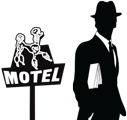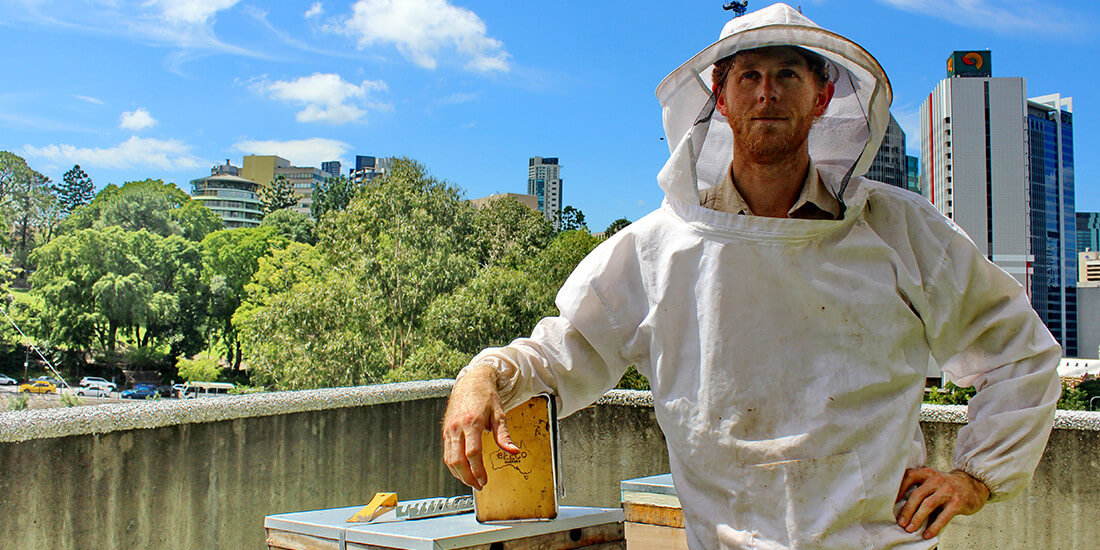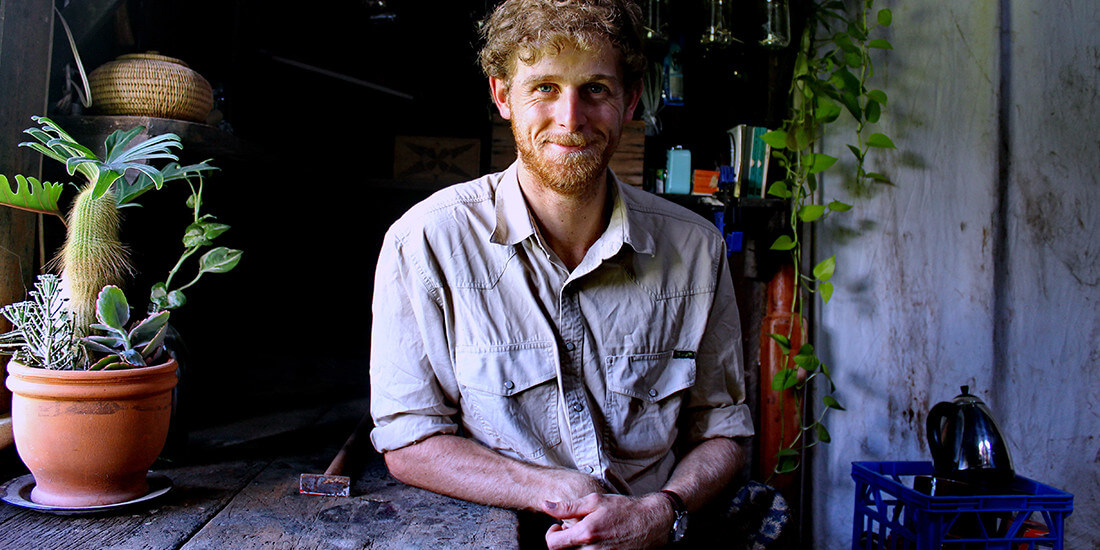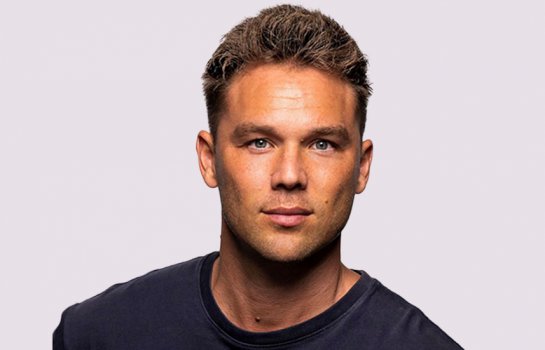Jack Wilson Stone, apiarist and co-creator, Bee One Third
If we lose the bees, we lose one in every three plates of food we eat immediately ...
Jack Wilson Stone, and his beloved bees, seem to be creating quite the buzz in Southeast Queensland. The social entrepreneur has bee hives on the rooftops of 14 environmentally friendly and community minded business across Brisbane and the Gold Coast. Along with his Bee One Third business partner, he has ambitions to make a real contribution to the fabric of our urban environment and increase people’s knowledge about the plight of the bee. Considering the simple act of pollination that bees perform is key to producing a sizable portion of what’s on our plate we should be more considerate of our winged friends. In addition to keeping his rooftop bees, Jack runs beekeeping workshops and bottles jars of Bee One Third honey that can be purchased in specialty shops and cafes across the region. The Weekend Edition sat down with Jack to catch-up on the buzz.
Firstly, what is an apiarist and how did you become one?
An apiarist is simply a beekeeper, commonly one that makes a living from keeping bees. If you’re passionate about bees, and own a beehive, I’d call you an apiarist though, it’s a nice title wouldn’t you agree?
Tell us about Bee One Third?
Bee One Third is an enterprise teaching people about the importance of loving the bees. Our simple message that ‘One Third of our global food supply is pollinated by bees’ (hence the name), is a simple omen in our eyes to respect and love these essential pollinators. We place beehives on rooftops and throughout neighbourhoods in partnership with sustainably minded businesses throughout South East Queensland to help promote our message.
What do you hope to achieve through Bee One Third?
To help the everyday changemaker become more conscious about the choices they make around their daily food purchases, while providing insight into how they too can contribute in small ways to create a more friendly pollinator environment. Without pollinators like bees, we would struggle to produce real, nutritious food.
Bees are facing a pretty dire future caused by pesticides and urban sprawl, what does that mean for the human race?
I don’t have the answer to that question and I am yet to meet someone who is bold enough to talk truths in response to it. I do know though, that if we lose the bees, we lose one in every three plates of food we eat immediately. Then, well, it can only get worse. Who wants to be paying $90 a kilo for apples?
What can be done to ensure the worst-case scenario doesn’t become reality?
We need to start setting realistic outcomes for communities and governments to contribute back to their local environments. Whether this is through planting more bee friendly plants to attracts bees back into suburbia or our farmlands, or putting more of an emphasis on the importance of supporting LOCAL food producers in our major cities.
What is the biggest misconception about bees?
That the colony is made up predominantly of male bees… False, 99 percent of the colony is built on the foundation and hard work of the female ‘worker’ bee, who as daughters to the colony’s one queen bee, take on over 15 different roles in the hive throughout their lifetime of six weeks.
If people are toying with the idea of keeping their own bee colonies, where should they start?
I always emphasis completing a reputable beekeeping course, and through that, questioning whether this is the best time for you in your lifetime to keep bees. Bees are an immense responsibility, and as a newborn beekeeper it is important to understand you are becoming a steward for your local environment, a representative for global change, and a primary producer of your own food. This ain’t no game.
What is the best and worst part about being an Apiarist?
Best: Feeding people the best honey in the world, being surrounded by nature’s gift and seeing a bee colony grow from 200 bees to 60,000 bees under your wing… pardon the pun.
Worst: The heat, the stings, the heavy lifting, the long days… Enough said.
What’s the best advice you’ve ever received, given or ignored?
A gent by the name of Daniel Lewis first taught me the importance of the five P’s … ‘Proper preparation prevents poor performance…’ I’ve received it, I’ve given it, and I’ve to date, still managed to ignore it.
What has been your greatest challenge in establishing Bee One Third?
Trying to get a grip on this beast called Mother Nature.
Where can people sample some of Bee One Third’s sweet sweet nectar (honey)?
You can find a range of local and regional honeys at the Brickworks Centre at 107 Ferry Road, where they are also selling their very own honey produced on the rooftop of the centre. If you’re a café, restaurant, precinct or retail store, please get in touch as we’d love to make it more widely available on the coast!
Photo credit: Kate Stark



